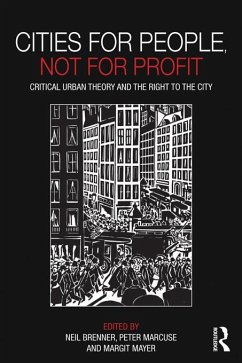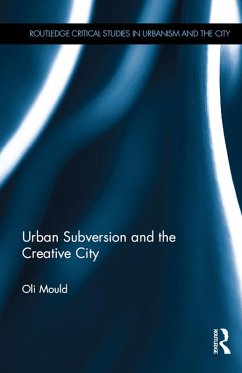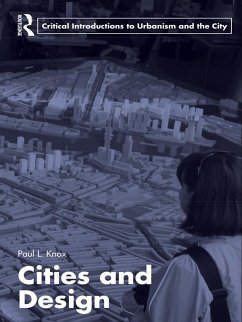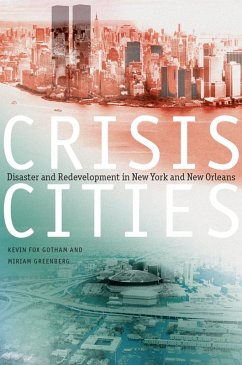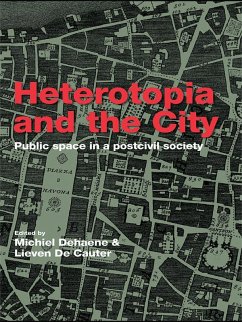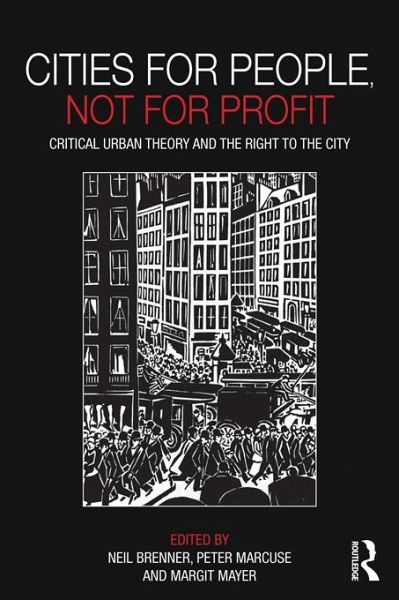
Cities for People, Not for Profit (eBook, PDF)
Critical Urban Theory and the Right to the City
Redaktion: Brenner, Neil; Mayer, Margit; Marcuse, Peter
Versandkostenfrei!
Sofort per Download lieferbar
56,95 €
inkl. MwSt.
Weitere Ausgaben:

PAYBACK Punkte
28 °P sammeln!
The worldwide financial crisis has sent shock-waves of accelerated economic restructuring, regulatory reorganization and sociopolitical conflict through cities around the world. It has also given new impetus to the struggles of urban social movements emphasizing the injustice, destructiveness and unsustainability of capitalist forms of urbanization. This book contributes analyses intended to be useful for efforts to roll back contemporary profit-based forms of urbanization, and to promote alternative, radically democratic and sustainable forms of urbanism.The contributors provide cutting-edge ...
The worldwide financial crisis has sent shock-waves of accelerated economic restructuring, regulatory reorganization and sociopolitical conflict through cities around the world. It has also given new impetus to the struggles of urban social movements emphasizing the injustice, destructiveness and unsustainability of capitalist forms of urbanization. This book contributes analyses intended to be useful for efforts to roll back contemporary profit-based forms of urbanization, and to promote alternative, radically democratic and sustainable forms of urbanism.
The contributors provide cutting-edge analyses of contemporary urban restructuring, including the issues of neoliberalization, gentrification, colonization, "creative" cities, architecture and political power, sub-prime mortgage foreclosures and the ongoing struggles of "right to the city" movements. At the same time, the book explores the diverse interpretive frameworks - critical and otherwise - that are currently being used in academic discourse, in political struggles, and in everyday life to decipher contemporary urban transformations and contestations. The slogan, "cities for people, not for profit," sets into stark relief what the contributors view as a central political question involved in efforts, at once theoretical and practical, to address the global urban crises of our time.
Drawing upon European and North American scholarship in sociology, politics, geography, urban planning and urban design, the book provides useful insights and perspectives for citizens, activists and intellectuals interested in exploring alternatives to contemporary forms of capitalist urbanization.
The contributors provide cutting-edge analyses of contemporary urban restructuring, including the issues of neoliberalization, gentrification, colonization, "creative" cities, architecture and political power, sub-prime mortgage foreclosures and the ongoing struggles of "right to the city" movements. At the same time, the book explores the diverse interpretive frameworks - critical and otherwise - that are currently being used in academic discourse, in political struggles, and in everyday life to decipher contemporary urban transformations and contestations. The slogan, "cities for people, not for profit," sets into stark relief what the contributors view as a central political question involved in efforts, at once theoretical and practical, to address the global urban crises of our time.
Drawing upon European and North American scholarship in sociology, politics, geography, urban planning and urban design, the book provides useful insights and perspectives for citizens, activists and intellectuals interested in exploring alternatives to contemporary forms of capitalist urbanization.
Dieser Download kann aus rechtlichen Gründen nur mit Rechnungsadresse in A, B, BG, CY, CZ, D, DK, EW, E, FIN, F, GR, HR, H, IRL, I, LT, L, LR, M, NL, PL, P, R, S, SLO, SK ausgeliefert werden.




